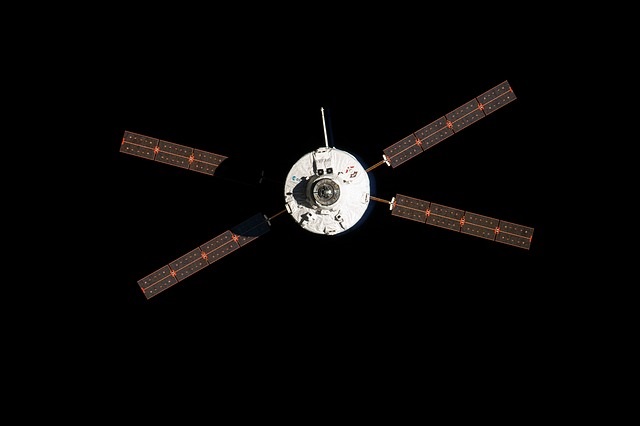Space is no longer something unattainable for modern man. Just some 56 years have passed since Yuri Gagarin became the first person to travel into space, and today we already know so much about the space surrounding our planet and all other objects of the universe. However, as everyone now knows, earthlings do not stop there, and today we will try to understand and explain the fact why the development of the Cosmos is important for humanity.
Humanity's interest in heaven was universal and enduring. Humans are forced to explore the unknown, discover new worlds, push the boundaries of our scientific and technological frontiers, and then move on. Solving Research Problems outer space human, we expand technology, create new industries and help in establishing peaceful communication with other countries. Based on what we learn there, we will prepare astronauts for the challenges of long-term flight and the continuous expansion of human exploration beyond where we have been before.
It is important to understand that there are many factors that influence the importance of space exploration. And we will consider the most significant of them in our article.
1. The development of the Cosmos is new knowledge
First of all, the Cosmos is studied in order to gain new knowledge not only about how our universe works, but also about the Earth itself. It is in outer space that there are answers to many questions that have been of interest to mankind for many years.
The development of the Cosmos is new knowledge
Researchers can visit near-Earth asteroids, where we can get answers to questions that people have always asked. Visiting the asteroid will provide valuable mission experience and prepare us for the next steps - perhaps the first humans to go to Mars. Robotic intelligence continues to provide deep answers about our universe, visiting distant places, providing intelligence and collecting scientific data. Combining both human and robotic research methods, we will use technology and our senses to increase our ability to observe, adapt and uncover new knowledge.
2. The development of the Cosmos is the safety of mankind
The most important aspect in the development of outer space by mankind is also the provision of security on the scale of our entire planet. The fact is that it is thanks to the systematic observation of outer space by scientists that we are able to predict the movement of such cosmic bodies as asteroids and comets, which can become a potential threat to the Earth.
Why the International Space Station?
The first step in undertaking a long and difficult journey is to lay a solid foundation for successful work. The International Space Station serves as a national laboratory for research on human health, biological and material resources, as a technological testbed and as a stepping stone for further transition into the solar system. At the International Space Station, we will improve and explore new ways to keep astronauts safe, healthy and productive while exploring, and we will continue to expand our knowledge of how materials and biological systems behave outside of gravity.
We do not exclude, of course, the possibility of the existence of other forms of life, previously unknown to mankind, which can also be potentially dangerous for people and should be studied.

3. The development of space is minerals
Another very reasonable answer to the question of why the development of the Cosmos is important for humanity is that the Earth is gradually running out of minerals necessary for normal human life, production, and further development of technologies.
Transbunary space is the vast expanse surrounding the Earth-Moon system, extending far beyond the orbit of the Moon, and dominated by two-body gravitational fields. Studying in transmunar space, in addition to protecting the Earth's geomagnetic field, will provide an unparalleled experience in deep sea operations. Lagrangian points—locations in cislunar space where the gravitational influences of the Earth and Moon cancel each other out—are useful areas for research and exploration in which little or no movement is required to keep an object or spacecraft stationary.
As you know, minerals are mined from the bowels of the Earth, and their number is gradually decreasing. However, in the Cosmos, on other planets, deposits of various minerals are of colossal proportions. And the sufficient development of the space industry will allow people to significantly replenish the stocks of necessary substances and products.
4. The development of space is the colonization of planets
The colonization of Mars is no longer a plot for science fiction novels, because today it is already a reality. So, in 2026, people have planned a project for the flight of people to Mars and the creation of the first colony there. The success of the project guarantees people the possibility of future full-fledged colonization of the planet and its use as an additional base for placing humanity in the event of irreparable natural disasters and disasters.
It is believed that asteroids formed at the beginning of our solar system- about 5 billion years ago, when a cloud of gas and dust called the solar nebula collapsed and formed our sun and planets. By visiting these objects near Earth to study the material that came from the solar nebula, we can find answers to some of the most difficult questions humanity, for example: how did the solar system form and where did the Earth's water and other organic materials such as carbon come from?
States can work together peacefully
In addition to revealing information about our solar system, asteroids can provide information about our Earth. By understanding more about asteroids, we can learn more about past terrestrial impacts and perhaps find ways to reduce the threat of future impacts. Future robotic missions to asteroids will prepare humans for long-term space travel and a possible trip to Mars. Robotic missions will provide reconnaissance information about asteroid orbits, surface composition, and even return of samples to Earth for a fu higher score.
At least these moments, described by us above, explain with the utmost accuracy why the development of the Cosmos is so important for humanity.
- Expansion of living space
- Development of science
- Stabilization of society in general and people in particular
- Insurance against global cataclysms
Let's chew the porridge again
Possibility of mining- On other bodies of the solar system, various substances and minerals are found in large volumes and in much more accessible forms. Mars has not been melted - heavy metals are right at the surface. Lack of atmosphere - the ability to use nuclear bombs for open-pit mining. The moon is a large piece of silicon (electronics production) and a Helium-3 battery (long-range energy perspective). Well lit (extracting energy from the sun's rays). Passing asteroids and comets are rich in metals, ice. Gas giants - in the future, a source of hydrogen. Outer space and other cosmic bodies are a practically unlimited place for collecting energy.
These robotic missions are an important step in preparing humans to visit asteroids, where we will learn about the valuable resources available in space and continue to develop ways to use them in our quest for more efficient and affordable exploration.
Mars has always been a source of inspiration for explorers and scientists. Robotic missions have found evidence of water, but if life exists outside of Earth remains a mystery. Robotic and scientific robotic missions have shown that Mars has similar characteristics and history to Earth, but we know there are surprising differences that we have yet to understand. Humans can build on this knowledge and look for signs of life and explore the geological evolution of Mars, leading to studies and methods that can be applied here on Earth.
The possibility of transferring environmentally polluted industries outside the atmosphere- everything is quite simple, the more people - the more you need to produce household chemicals, plastic, metal, etc. All this pollutes nature, reduces living space. Production in space / on other space bodies solves the problem of most of the waste. This means more space for people to live.
The Near Nearest Planetary Neighbor mission provides the best opportunity to demonstrate that humans can live for extended, even permanent, stays outside low Earth orbit. The technology and space systems needed to transport and support researchers will spur innovation and encourage creative ways to solve problems. As previous space exploration has shown, the resulting ingenuity and technology will have lasting benefits and applications.
People need to quench their thirst for research
The challenge of going to Mars and learning how to live there will encourage countries around the world to work together to achieve such an ambitious undertaking. The International Space Station has shown that opportunities for collaboration will highlight our common interests and provide a global sense of community.
Expansion of living space- in general, it is divided into 2 fundamentally different mechanisms: settlements outside the land; increase in habitable territories on earth. If everything is clear with the first, then by the second I mean the lands cleared of waste and the territories of former industries transferred from the land + the use of new territories and water areas that it became possible to master thanks to new technologies that developed along the way, as well as with an increase in the number of available resources to mankind.
Right now, one of the most breathtaking space objects in the world is a World War II hangar in California's Mojave Desert. Eleven other small space companies spread around the site at the Mojave Air and Space Port. The experience won't be cheap.
This cost alone puts this untapped space tourism industry beyond the reach of most of us. Thus, it is easy to abandon the entire enterprise, like private jets in space, rather than benefiting all of humanity. This frees cosmic ambitions from the traditional burden. By the time humans actually stepped on the lunar surface, NASA's budget was already shrinking. If a company can raise cash, it can build a spaceship. Inevitably, this free market favors people who already have a lot of money.
Development of science– the ability to explore space directly depends on the level of scientific development of mankind. Accordingly, for space exploration, it is necessary to make quite a few discoveries and develop them to the level of economically beneficial use, which in turn will contribute to the development of other spheres of human life.
The development of space is the colonization of planets
But this does not apply to all companies in the private space business. For him, the creation of a sub-orbital tourist vessel is part of a long-term strategy. “We started looking into what a fully reusable orbital system would look like and implement, we would need to develop earlier versions of that to learn how to build them,” he says. "These earlier versions should also be making money."
Rejection is now an option on which Nasa is forever saddled with the phrase “rejection is not an option.” Private companies do not have such restrictions until the money runs out. At the entrance to the Mojave air and space port, a reminder dominates that not all space projects succeed. The rotary rocket, resembling a giant white traffic cone, is one of the most peculiar aircraft that have ever been built - probably best called a semi-helicopter, a semi-rotor, and if you were being cruel, you might as well call the concept semi-baked.
Stabilization of society- Space exploration is not an easy task. It can be said beyond the task. And when there is one big goal, people forget about old grievances. How many times has the image of a great enemy been used by various kings in the history of mankind? But the image of the enemy is only one of the variants of the "Big Goal". The task of space exploration in the first couple of years will take a lot of smart and active people, give work to the poor. Then, with the development of science and space exploration, the poor will receive an improvement in living conditions (the use of space technologies in everyday life), as well as more opportunities (equatorial Africa during space exploration will most likely become one big spaceport, which means millions of jobs, infrastructure development and all it's on a poor continent). In the longer term, obtaining a lot of resources outside the planet will make it possible to smooth out the unevenness of their occurrence on earth, which means that the problem of the rich north and the poor south will no longer hold back the development of the south, and more favorable climatic conditions will give impetus to accelerated development (another factor in leveling the situation). Well, when space has already been mastered to some extent, and conditions on Earth are practically equal, and a new round of stagnation will begin. The possibility of self-isolation, the founding of their own city-state, economic independence, will no longer allow society to plunge into the abyss of instability (unless, of course, there are radical groups that are confident that they have the right to dictate development paths to others and impose their principles by interfering in internal affairs others, which in principle does not differ from the current situation).
The technique proved to be reliable, but funding problems forced the company to fold. Today he collects desert dust in a small memorial garden. "One of the obstacles in modern society is risk and failure intolerance, and if you're really going to innovate, you're going to fail sometimes,” he says.
It will inspire a new generation of engineers. The spaceport is more like a university campus than a space center. He proudly shows me one of the rocket engines he is helping to develop, currently a mass of pipes, wires and valves. The way Mojave works in small teams with limited resources is completely different from how space agencies work. Perhaps young engineers will have equally world-changing effects. Not only can conventional space rockets only be used once, they are extremely expensive to launch - and there is limited competition.
Insurance against global cataclysms- everything is quite simple, if people do not live on the same planet, then the destruction of one of the "houses" of people will not lead to their complete disappearance. Giant asteroid, pandemic, seismic instability? Someone will survive.
This is just a short list. In fact, there are more reasons, I have described only those that are easiest to perceive and explain, but I hope that at least some of the critically minded readers become thoughtful, because the ability to perceive new ideas and revise your previous experience is one of the limiting factors in the development of modern people, I don't want to believe that people have stopped developing.
Scientific institutions have already signed up for experiments on these sub-orbital flights. If the next generation of spacecraft can reach orbit, it will greatly reduce the cost of getting into space. This means we can launch satellites, spacecraft and space exploration missions at a fraction of the cost. The last frontier could become economically viable for many more people.
It will be good for health
Hypersonic travel could be a possibility. Remember that you can take off from London, fly into space and land in San Francisco in an hour? When discussing technologies that are promised but never delivered, those who come in second behind flying vehicles should be so-called point-to-point sub-orbital movements. Can space tourism companies in Mojave finally help make this dream a reality? George Whitides puts it this way: "It's fundamentally transformable for humanity," he tells me.
Tags: space, science, reasons, importance








